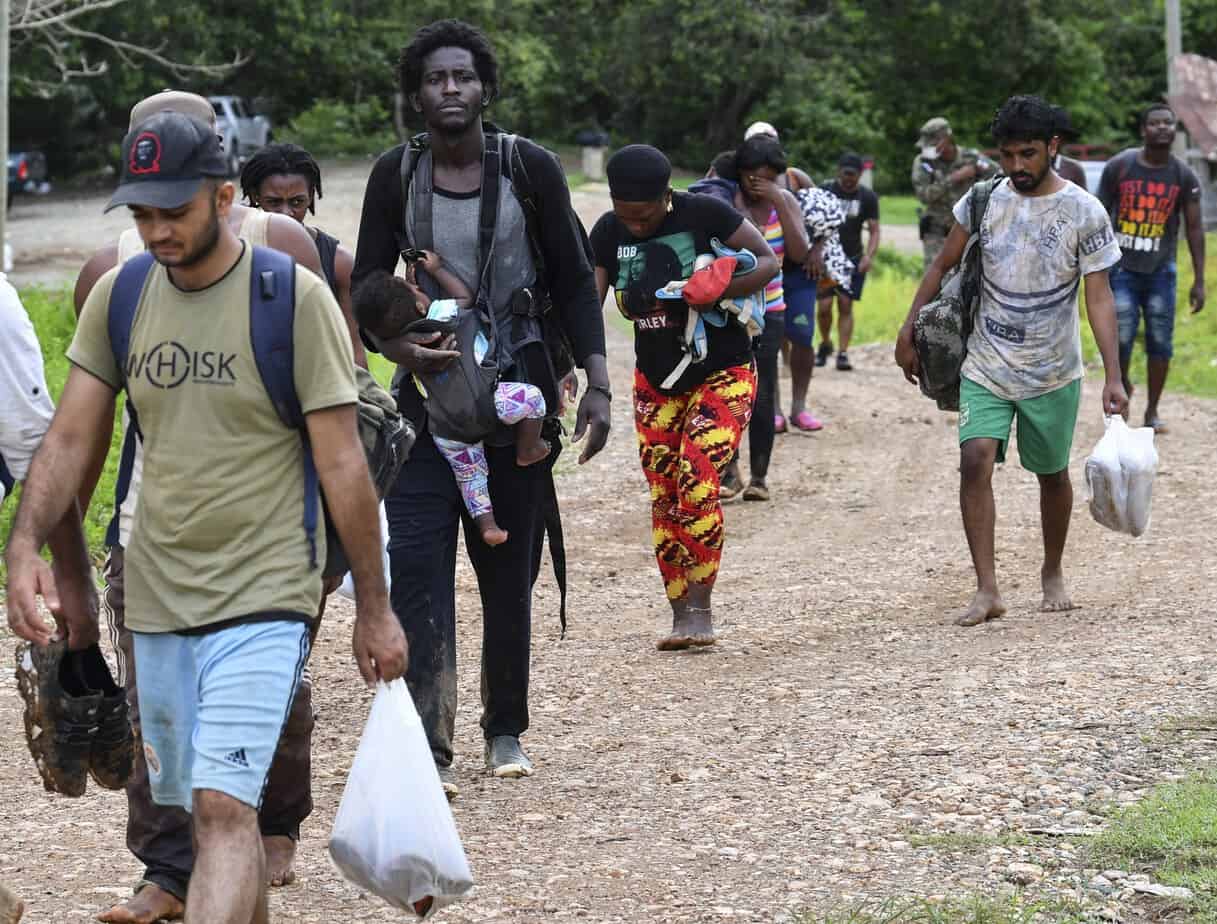Over half a million migrants have crossed the inhospitable Darien jungle, located on the border between Colombia and Panama, on their way to the United States this year. This record number doubles the total for all of 2022, a Panamanian minister reported this Wednesday.
“Yes,” answered Juan Manuel Pino, the Panamanian Minister of Security, succinctly to AFP’s question if the number of migrants entering the country through the jungle this year had surpassed half a million. In the jungle, which is filled with natural obstacles, there are also bands that rob, kidnap, and violate.
Previously, the Ministry of Security reported that as of October 31, 458,000 migrants, including nearly 300,000 Venezuelans, had crossed the natural border of the Darien, which spans 266 km in length and covers an area of 575,000 hectares. This jungle has become a corridor for migrants from South America trying to reach the United States via Central America and Mexico.
The record of more than half a million greatly exceeds the total for the previous year, when 248,000 people passed through the inhospitable jungle, according to official Panamanian data.
In addition to Venezuelans, the jungle is mainly crossed by Ecuadorians (50,000 until October), Haitians (41,000), Chinese (18,000), as well as Vietnamese, Afghans, and individuals from African countries. People of all ages, including babies just a few weeks old, undertake this journey.
This situation has forced the Panamanian government, along with international organizations, to set up migrant care centers at various points in the country.
Facing Dangers
“Thousands of [migrant] people who risk their lives, often along with their families, need an immediate and ongoing response of protection and humanitarian assistance,” said Olivier Dubois, head of the International Committee of the Red Cross (ICRC) delegation for Mexico and Central America, this Wednesday.
Migrants “face dangers” and have specific protection needs, “especially if they were victims of sexual violence, extortion, kidnappings, or other crimes,” added Dubois in a press conference in Panama’s capital.
To try to contain this migratory wave, the Panamanian authorities announced a series of measures on September 9, such as increasing the deportation of those who enter the country irregularly.
After crossing the jungle, the thousands of migrants arrive at the village of Bajo Chiquito, where they sleep outdoors while queuing to board canoes the next morning. These canoes will take them to a shelter in Lajas Blancas, navigating almost three hours on the Tuquesa river, with a fare of 25 dollars per passenger.
In Bajo Chiquito, staff from UN agencies like UNHCR and IOM, as well as Doctors Without Borders (MSF) and the Red Cross, are present to assist the migrants.
From Lajas Blancas, they continue on buses, paying another 40 dollars, to cross Panama towards the border with Costa Rica, and then they proceed to Nicaragua, Honduras, Guatemala, and Mexico, until reaching the United States border.
Unprecedented Crisis
A month ago, United States President Joe Biden met with Latin American leaders to promote growth with more investment, with the aim of curbing migration (and incidentally countering China’s influence).
Convened by Mexico, presidents and foreign ministers from a dozen Latin American countries discussed mechanisms to contribute to orderly migration on October 22.
Also, the President of Costa Rica, Rodrigo Chaves, visited Panama in October to discuss this issue with his counterpart, Laurentino Cortizo.
“The number of migrants who have crossed the jungle amounts to more than 11% of Panama’s population. This is an unprecedented crisis that has not received enough global or regional attention,” stated Luis Eguiluz, general coordinator in Colombia and Panama of Doctors Without Borders (MSF).
“These migrants are exposed to a situation of extreme vulnerability: hunger, lack of shelter and water sources, excessive charges, misinformation and scams, xenophobia, and physical, psychological, and sexual violence,” added Eguiluz, quoted in an MSF statement.
In 2008, the first year for which records are available, 28 people entered Panama through this inhospitable jungle.






